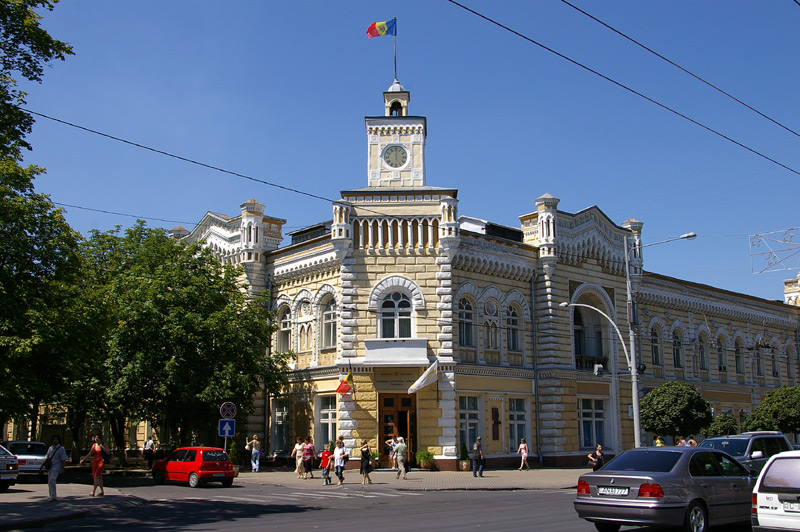
Today Moldova starts its path towards joining the EU Civil Protection Mechanism - a European solidarity initiative designed to support countries in times of crisis and disaster.
During his visit to Chișinău, Commissioner for Crisis Management, Janez Lenarčič, presented Moldova with a pathway document for joining the EU Civil Protection Mechanism. This important step serves to further strengthen the partnership between the country and the EU in the area of disaster prevention, preparedness, and response. During his visit, the Commissioner held official meetings with President Maia Sandu and Minister of Internal Affairs Ana Revenco.
Moldova has benefitted from the EU Civil Protection Mechanism to cope with large-scale displacement triggered by Russia's invasion of Ukraine. Once Moldova has officially joined the Mechanism, it will also be able to offer solidarity and assistance to other countries in need.
Due to the interdependence of electricity systems in Moldova and Ukraine, Russia's heavy shelling of Ukraine's energy infrastructure has caused occasional country-wide blackouts in Moldova and left its energy system partially exposed to further interruptions. The EU is now deploying its rescEU energy reserve to send 36 power generators to Moldova. The generators will be distributed between 30 hospitals across the country.
Finally, the EU is allocating over €10 million in humanitarian funding to support Ukrainian refugees and their host families in Moldova. Additionally, EU-funded humanitarian partners are providing emergency services to vulnerable Ukrainian refugees on the move, including medical care, psychosocial support, hygiene material, and protection services. This contribution brings the total EU humanitarian response in Moldova to more than €48 million since the beginning of Russia's war of aggression against Ukraine.
Background
The EU Civil Protection Mechanism aims to strengthen cooperation between the 27 EU countries and 9 Participating States (Iceland, Norway, Serbia, North Macedonia, Montenegro, Türkiye, Bosnia and Herzegovina, Albania, and most recently Ukraine) on civil protection to improve prevention, preparedness, and response to disasters.
When an emergency overwhelms the response capabilities of a country in Europe and beyond, it can request assistance through the Mechanism. The European Commission plays a key role in coordinating the disaster response worldwide. Since its inception in 2001, the EU Civil Protection Mechanism has been activated for more than 600 emergencies and crises inside and outside the EU.
Since the onset of Russia's war against Ukraine, over 700,000 people have fled to Moldova, and the country currently hosts more than 100,000 Ukrainian refugees. The EU is funding humanitarian projects in Moldova to support vulnerable Ukrainian refugees and the local families hosting them
EU partners have been at the centre of the humanitarian response in the country. They have provided protection assistance, warm clothes, transportation services, medical care, and psychosocial support to vulnerable people on the move. EU-funded cash assistance helps refugees and host families meet their basic needs like food, shelter, and health care.
Moreover, 18 EU Member States and Norway have offered in-kind assistance to Moldova through the EU Civil Protection Mechanism. It includes amongst others, shelter items, medical aid, food and energy supplies. Given the magnitude of needs, the Commission has also mobilised medical equipment from the rescEU medical stockpiles based in Germany, Hungary and the Netherlands. Photo by Vladislav Litvinov, Wikimedia commons.



































